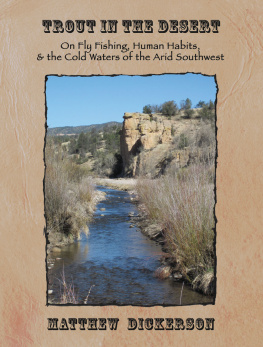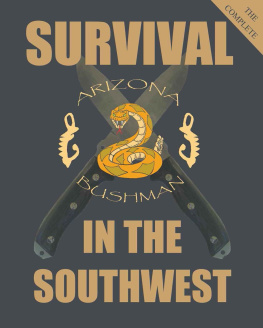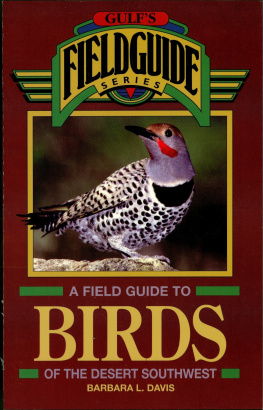Josephine Clifford - Overland Tales
Here you can read online Josephine Clifford - Overland Tales full text of the book (entire story) in english for free. Download pdf and epub, get meaning, cover and reviews about this ebook. year: 2013, publisher: Duke Classics, genre: Art. Description of the work, (preface) as well as reviews are available. Best literature library LitArk.com created for fans of good reading and offers a wide selection of genres:
Romance novel
Science fiction
Adventure
Detective
Science
History
Home and family
Prose
Art
Politics
Computer
Non-fiction
Religion
Business
Children
Humor
Choose a favorite category and find really read worthwhile books. Enjoy immersion in the world of imagination, feel the emotions of the characters or learn something new for yourself, make an fascinating discovery.
- Book:Overland Tales
- Author:
- Publisher:Duke Classics
- Genre:
- Year:2013
- Rating:3 / 5
- Favourites:Add to favourites
- Your mark:
- 60
- 1
- 2
- 3
- 4
- 5
Overland Tales: summary, description and annotation
We offer to read an annotation, description, summary or preface (depends on what the author of the book "Overland Tales" wrote himself). If you haven't found the necessary information about the book — write in the comments, we will try to find it.
Journey across the haunting desert landscapes of Arizona, New Mexico, and California in this stirring collection of travel essays from esteemed journalist Josephine Clifford. Regarded as a significant chronicler of California and its environs, Cliffords keen insight and observations offer a glimpse into the heart of the desert Southwest.
Overland Tales — read online for free the complete book (whole text) full work
Below is the text of the book, divided by pages. System saving the place of the last page read, allows you to conveniently read the book "Overland Tales" online for free, without having to search again every time where you left off. Put a bookmark, and you can go to the page where you finished reading at any time.
Font size:
Interval:
Bookmark:

First published in 1877
ISBN 978-1-62013-302-6
Duke Classics
2013 Duke Classics and its licensors. All rights reserved.
While every effort has been used to ensure the accuracy and reliability of the information contained in this edition, Duke Classics does not assume liability or responsibility for any errors or omissions in this book. Duke Classics does not accept responsibility for loss suffered as a result of reliance upon the accuracy or currency of information contained in this book.
TO MY KINDEST
AND
MOST CONSTANT READER,
MOTHER.
In the book I now lay before the reader, I have collected a series ofstories and sketches of journeyings through California, Arizona, and NewMexico. There is little of fiction, even in the stories; and thesketches, I flatter myself, are true to lifeas I saw it, at the time Ivisited the places.
A number of these stories first appeared in the OVERLAND MONTHLY, butsome of them are new, and have never been published. I bespeak for themall the attentive perusal and undivided interest of the kind reader.
THE AUTHOR.
It was a stolid Indian face, at the first casual glance, but lighting upwonderfully with intelligence and a genial smile, when the little darkman, with the Spanish bearing, was spoken to. Particularly whenaddressed by one of the fairer sex, did a certain native grace ofdemeanor, an air of chivalrous gallantry, distinguish him from the morecold-blooded, though, perhaps, more fluent-spoken, Saxon peoplesurrounding him.
Among the many different eyes fixed upon him now and again, in thecrowded railroad-car, was one pair, of dark luminous gray, that dweltthere longer, and returned oftener, than its owner chose to have the manof the olive skin know. Still, he must have felt the magnetism of thoseeyes; for, conversing with this, disputing with that, and greeting thethird man, he advanced, slowly but surely, to where a female figure,shrouded in sombre black, sat close by the open window. There wassomething touching in the young face that looked from out the heavywidow's veil, which covered her small hat, and almost completelyenveloped the slender form. The face was transparently pale, thefaintest flush of pink tinging the cheeks when any emotion swayed thebreast; the lips were full, fresh, and cherry-red in color, and thehair, dark-brown and wavy, was brushed lightly back from the temples.
The breeze at the open window was quite fresh, for the train in itsflight was nearing the spot where the chill air from the ocean drawsthrough the Salinos Valley. Vainly the slender fingers tried to move theobstinate spring that held aloft the upper part of the window. The colorcrept faintly into the lady's cheeks, for suddenly a hand, hardly largerthan her's, though looking brown beside it, gently displaced her fingersand lowered the window without the least trouble. The lady's gloves haddropped; her handkerchief had fluttered to the floor; a small basket wasdisplaced; all these things were remedied and attended to by theSpaniard, who had surely well-earned the thanks she graciously bestowed.
"Excuse me," he said, with unmistakable Spanish pronunciation; "but youdo not live in our Valleydo you?"
"This is my first visit," she replied; "but I shall probably live herefor the future."
"Ah! that makes me so happy," he said, earnestly, laying his hand on hisheart.
The lady looked at him in silent astonishment. "Perhaps that is the wayof the Spanish people," she said to herself. "At any rate, he has veryfine eyes, andit may be tedious living in Salinos."
Half an hour's conversation brought out the fact that a married sister'shouse was to be the home of the lady for a while; that the sister didnot know of her coming just to-day, and that her ankle was so badlysprained that walking was very painful to her.
From the other side it was shown that his home was in the neighborhoodof the town ("one of those wealthy Spanish rancheros," she thought);that he was slightly acquainted with her brother-in-law; that he was awidower, and that his two sons would be at the dept to receive him.These sons would bring with them, probably, a light spring-wagon fromthe ranch, but could easily be sent back for the comfortable carriage,if the lady would allow him the pleasure of seeing her safely under hersister's roof. She said she would accept a seat in the spring-wagon, andSenor Don Pedro Lopez withdrew, with a deep bow, to look after hisluggage.
"Poor lady!" he explained to a group of his inquiring friends, "poorlady! She is deep in mourning, and she has much sorrow in her heart."And he left them quickly, to assist his protg with her wraps. Thenthe train came to a halt, and Don Pedro's new acquaintance, leaning onhis arm, approached the light vehicle, at either side of which stood thetwo sons, bending courteously, in acknowledgment of the lady's greeting.When Don Pedro himself was about to mount to the seat beside her, shewaved him back, with a charmingly impetuous motion of the hand. "I amsafe enough with your sons," she laughed, pleasantly. "Do you stop at mybrother-in-law's office, pray, and tell him I have come."
Sister Anna was well pleased to greet the new arrival"without anattachment." Her sister Nora's "unhappy marriage" had been a source ofconstant trouble and worry to her; and here she came at lastalone.Brother-in-law Ben soon joined them, and Nora's first evening passedwithout her growing seriously lonesome or depressed. Sister Anna, to besure, dreaded the following days. Her sister's unhappy marriage, sheconfided to her nearest neighbor, had so tried the poor girl's nerves,that she should not wonder if she sank into a profound melancholy. Shedid all she could to make the days pass pleasantly; but what can you doin a small town when you have neither carriage nor horses?
Fortunately, Don Pedro came to the rescue. He owned many finehorses and a number of vehiclesfrom an airy, open buggy to acomfortably-cushioned carriage. He made his appearance a day or twoafter Nora's arrival, mounted on a prancing black steed, to whose everystep jingled and clashed the heavy silver-mounted trappings, which theolder Spaniards are fond of decking out their horses with. He cameonly, like a well-bred man, to inquire after the sprained ankle; butbefore he left he had made an engagement to call the very next morning,with his easiest carriage, to take both ladies out to drive.
And he appeared, punctual to the minute, sitting stiffly in thebarouche-built carriage, on the front seat beside the driver, who, toNora's unpractised eye, seemed a full Indian, though hardly darker thanhis master. True, the people of pure Spanish descent did say that thissame master had a slight admixture of Indian blood in his veins, too;but Don Pedro always denied it. He was from Mexico, he said, but hisparents had come from Spain. However this might be, Nora stood in mutedismay a moment, when the outfit drew up at the door; and she cast aquestioning glance at her sister, even after they were seated in thecarriage; but Sister Anna's eyes seemed repeating an old admonition toNora"Be patient, poor child; be still." And Nora, passing her handacross her face, heeded the admonition, gathered courage, and gaveherself up to the perfect enjoyment of the scene and the novelty of theexpedition.
It was a late spring daythe Valley still verdant with the growinggrain, the mountains mottled with spots of brown where the rain of thewhole winter had failed to make good the ravages of thousands of sheep,or where, perhaps, a streak of undiscovered mineral lay sleeping in theearth. Scant groups of trees dotted the Valley at far intervals, rangedthemselves in rows where a little river ran at the foot of the Gabilan,and stood in lonely grandeur on the highest ridge of the mountain. Wherethe mountain sloped it grew covered with redwood, and where the hillsshrank away they left a wide gap for the ocean breeze and the ocean fogto roll in.
Font size:
Interval:
Bookmark:
Similar books «Overland Tales»
Look at similar books to Overland Tales. We have selected literature similar in name and meaning in the hope of providing readers with more options to find new, interesting, not yet read works.
Discussion, reviews of the book Overland Tales and just readers' own opinions. Leave your comments, write what you think about the work, its meaning or the main characters. Specify what exactly you liked and what you didn't like, and why you think so.







